In 1975, the Khmer Rouge gained control of the Cambodian government with the goal of transforming the country into a communist state. For four years, millions of people were forced from the cities into labor camps where an estimated 1.7 million died–mostly men and people who were educated so the regime could dominate the population easier. Sunchea Phou is a Cambodian genocide survivor. This is her story.
By: Heather Newgen | Twitter: @hnvoluntourist
“I was 5 or 6 -years -old and still remember the [gun] fire going back and forth over the buildings”, Phou revealed as she talked about what it was like to escape Cambodia during the genocide.
21 to 24 percent of the population was killed from starvation, torture, abuse and execution.
“My father is one of them who died. They took him to the killing field. We were told my brother was buried alive because he was sick and they don’t treat sick people. They just bury them. Another brother died after the war because there was no medical help,” she said.
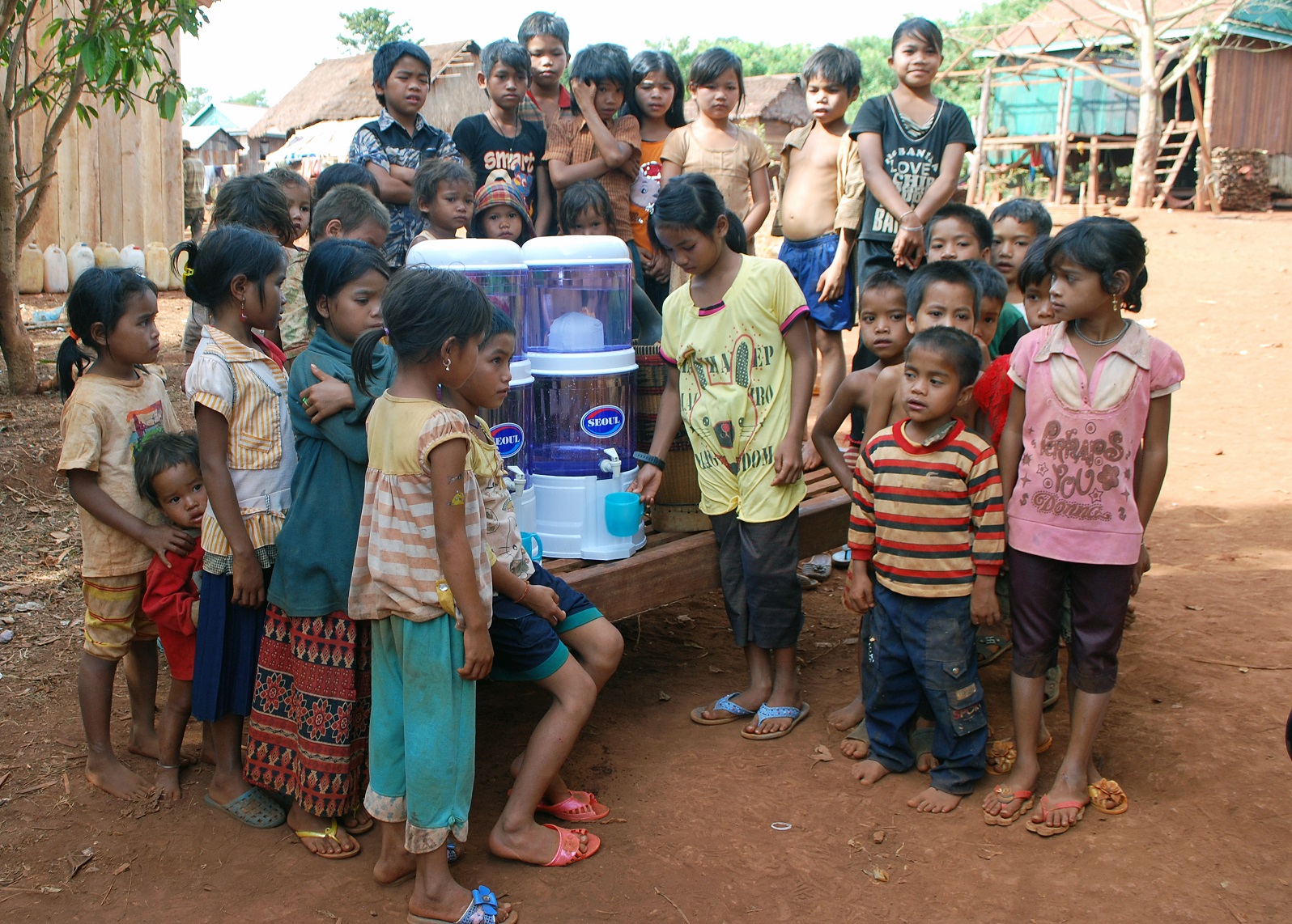 Cambodian genocide survivor Sunchea Phou delivers needed supplies to Cambodia
Cambodian genocide survivor Sunchea Phou delivers needed supplies to Cambodia
Photo courtesy of Sunchea Phou
Phou and her mother fled Cambodia, which saved their lives, but the two endured unthinkable circumstances along their journey.
“My mom and I escaped the country. We walked for a month. We went through the forest and crossed the Thai border to try to get into the refugee camp. Finally we got into the camp, but we were illegal. We had to worry about thieves coming almost every day. They were heavily armed coming into the refugee camp to either rape or rob people. You have to be alert every night. People would scream, “the thieves are coming,” and you have to grab whatever you can and run,” Phou told The Voluntourist at the International Travel Goods Show in Las Vegas.
“I remember one day I was so sick and tired that I told my mom, “You have to run. I need to sleep.” She dragged me out of bed and we had to run,” she continued. “For five years we lived in that camp. Some people don’t want to run. What they did in the evening after dinner, people would head to the ditch, which was full of pee and poo. Everyone would lay their mat down and sleep over it because they would be closer to the soldiers that way. The thieves wouldn’t come close to the soldiers. So every night they tried to move their families closer to them.”
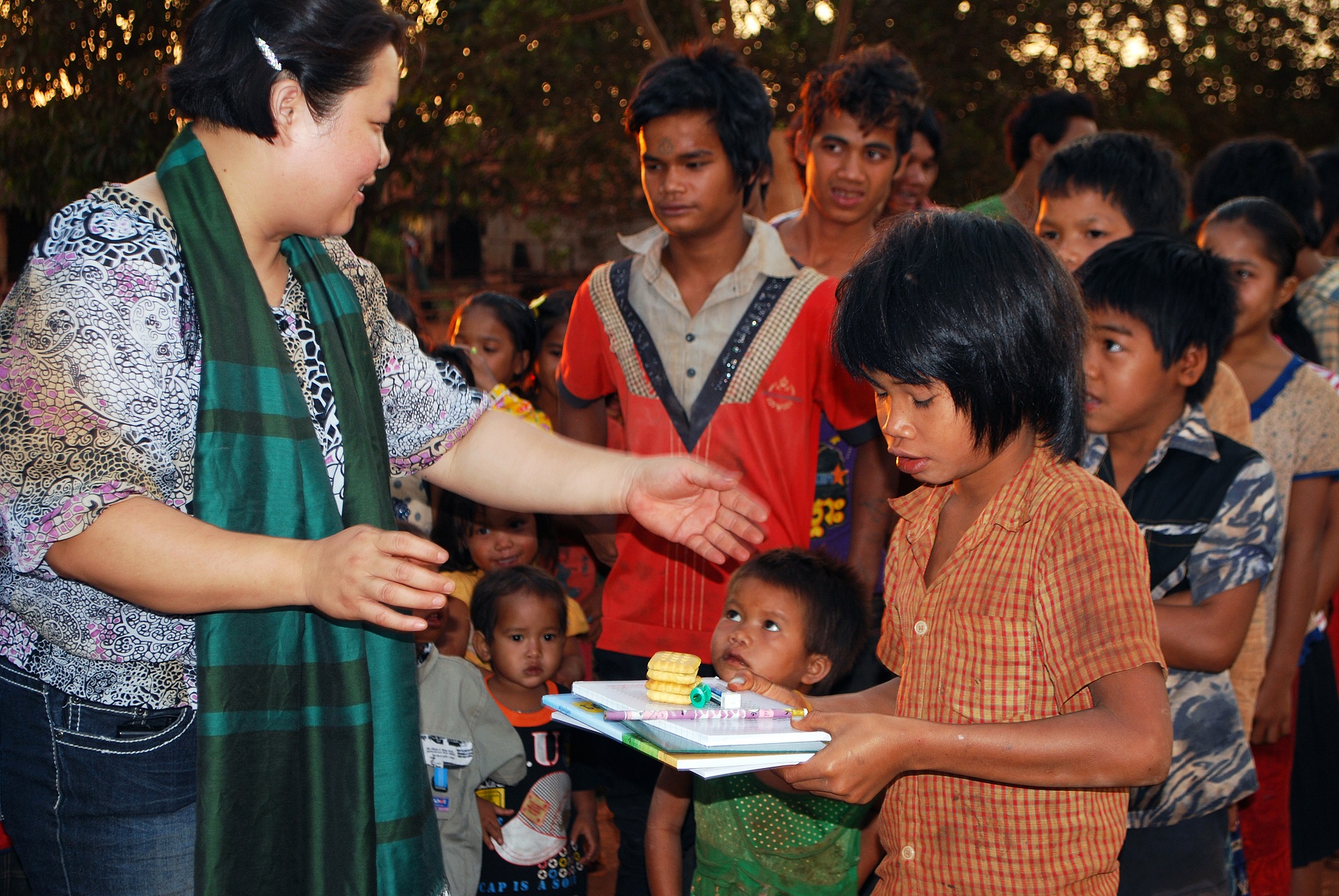 Cambodian genocide survivor Sunchea Phou delivers needed supplies to Cambodia
Cambodian genocide survivor Sunchea Phou delivers needed supplies to Cambodia
Photo courtesy of Sunchea Phou
Phou explained even if you make it through the horrible camp conditions, there was no guarantee you would be okay.
“There’s a lot of tragedy in the camps. We’re all illegal and you have to have an ID. The first wave, the first people who escape right after the war, gets the ID right away. The second wave gets ID right away. The third wave, the last people to escape the country, we cannot get the ID to get out.”
She added, “But here’s the thing. Even if you get an ID, you aren’t automatically immigrated. You have to pass an interview test. If you cannot pass the interview test, then you are sent back to Cambodia. Whoever passes the interview test is then sent to another camp where you have to pass a health test. If you cannot pass that test, you are sent back to Cambodia.”
Going back to Cambodia wasn’t an option for some, and to help their families have a chance of getting through the exhaustive interview process they sacrificed themselves.
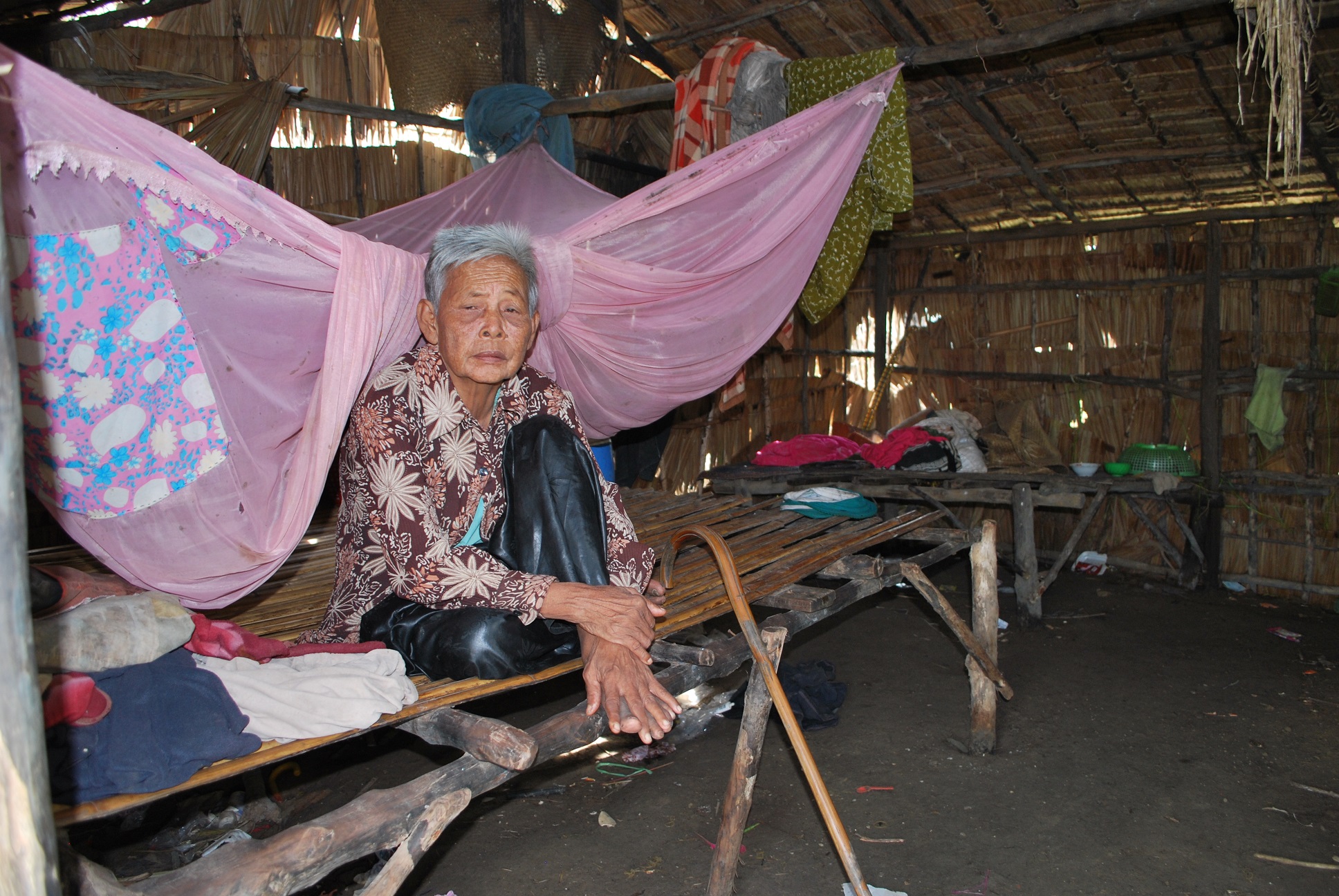 Cambodian genocide survivor
Cambodian genocide survivor
Photo courtesy of Sunchea Phou
“My friend was sick and he couldn’t get immigrated. He didn’t want to be a burden to his family so he hanged himself next to my room. My neighbor woke me up in the middle of the night and told me.”
Phou was a teenager when she made it out of the camp with her mom. The two began a new life, but again with many new challenges.
“It’s a long five years in the camp. When I was finally immigrated to Canada, we had no money and no education. We had two boxes of clothes, that’s it. I was put in school right away. I was 13 and they placed me in the 7th grade. I spoke no French at all and then after school I would help my mom sew because we didn’t have any money.”
Although Phou’s formidable situation was overwhelming, she beat the odds and excelled in school, which led to a career in design. She worked for powerhouse companies like REI, Eddie Bauer and Nike where she helped designed NFL uniforms for the Seattle Seahawks before launching YaY Novelty , a lifestyle and accessories brand with the most creative and colorful wallets, totes and newly created gratitude jars.
“I combined fun with function and sell expression. I’ve met a lot of people who can’t express themselves,” Phou said. In addition, “YaY is my solution to creating a product people need, but also helping other Cambodian genocide survivors.”
20% of the proceeds help the remaining Cambodian genocide survivors still living in Cambodia.
“Many of the survivors are in their 80s and there’s no help for them. The Cambodian genocide killed all the husbands and kids, so there’s nobody to take care of them. Several rely on their neighbors to get food every day. They live in terrible conditions. There’s holes in their roofs. They sleep on the ground so when it’s flooded, the sewer and rain water mix together and [it reaches their bed]. It’s a nightmare. I went there personally and I want to create a nursing home where they don’t need to worry about where they’re going to get three meals a day.”
Phou helps the people of Cambodia as much as she can and considers herself lucky. “I was able access education, but a lot of people they send back to Cambodia and they couldn’t escape. Their life was much harder.”
She has personally funded the construction of a new school, delivered food and supplies to needy families in Cambodia and is working towards building the nursing home for survivors.
For more information on Phou and YaY Novelty, visit www.yaynovelty.com

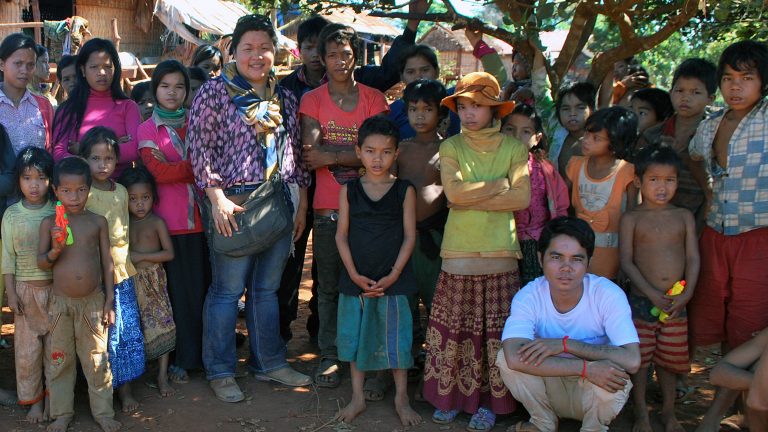
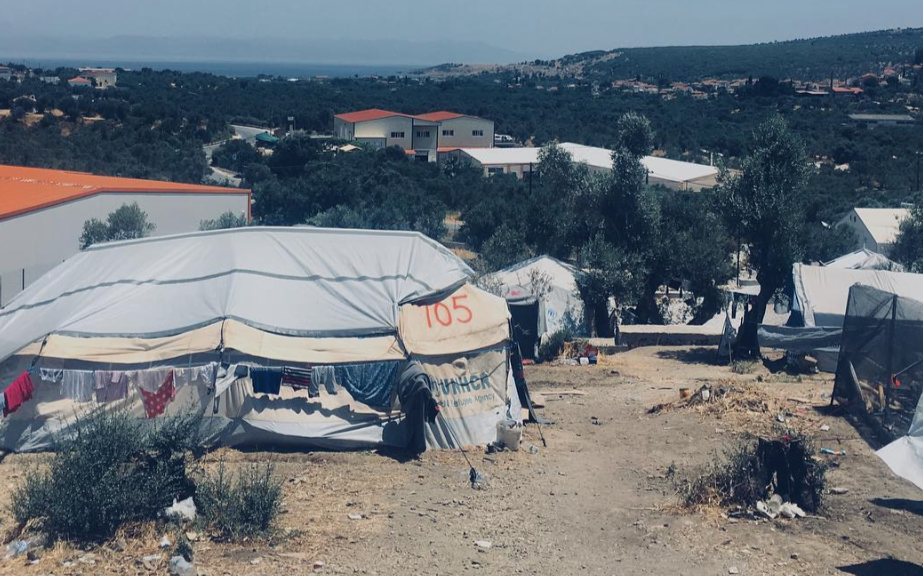
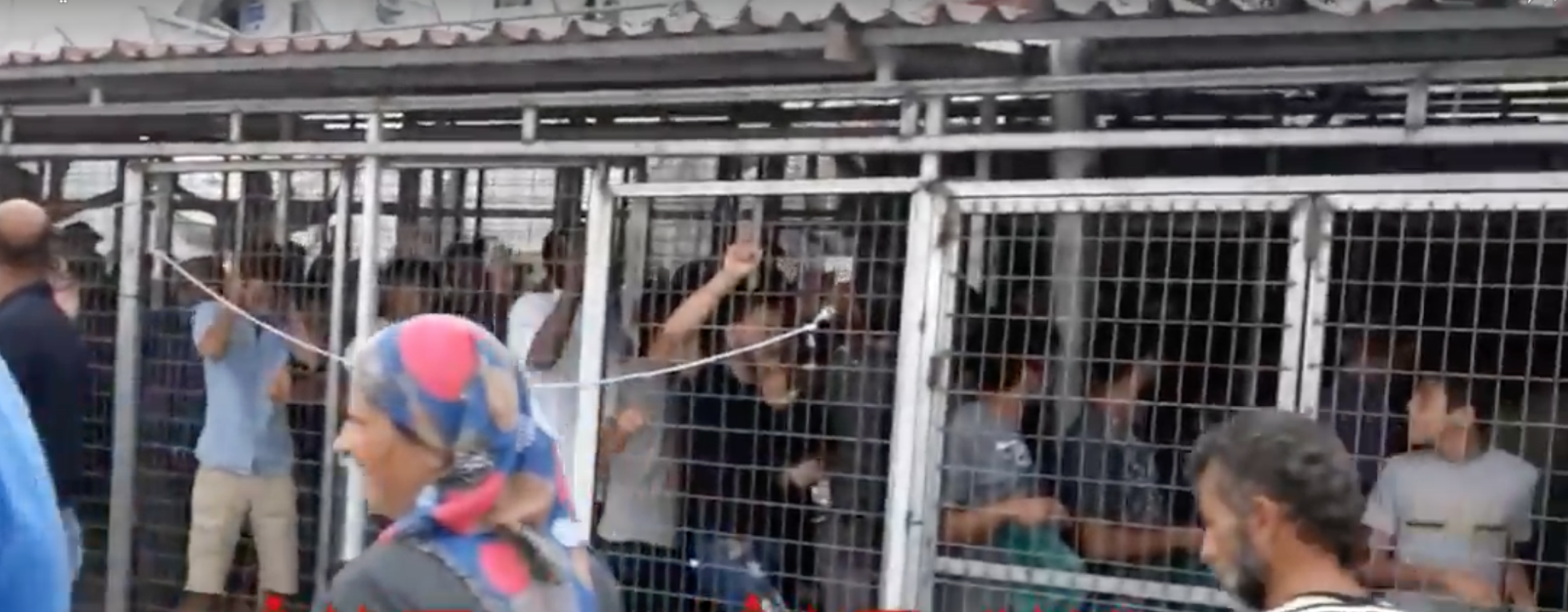 Refugees waiting in long lines inside the Moria Camp
Refugees waiting in long lines inside the Moria Camp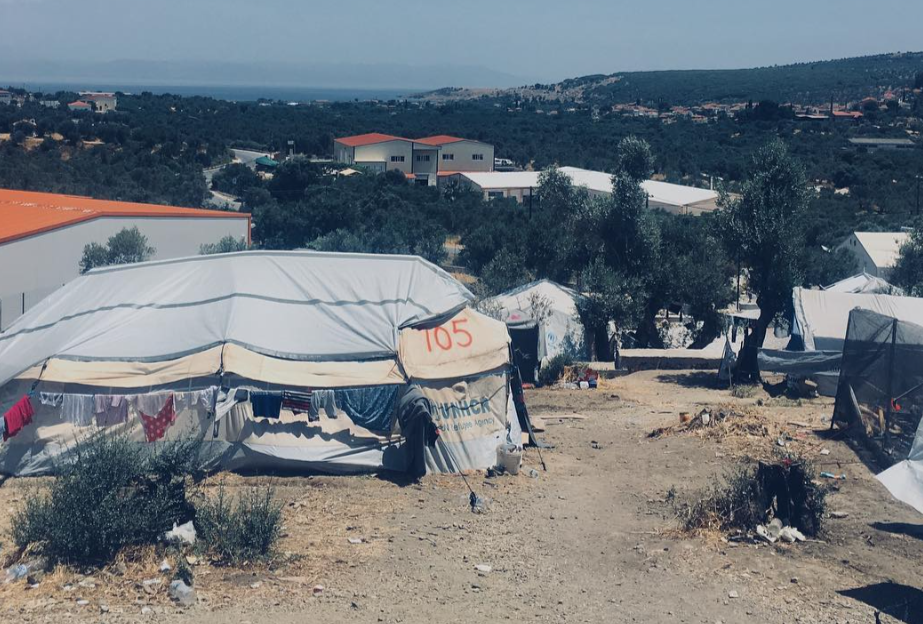 A tent outside the Moria Camp in Lesvos, Greece where refugees stay
A tent outside the Moria Camp in Lesvos, Greece where refugees stay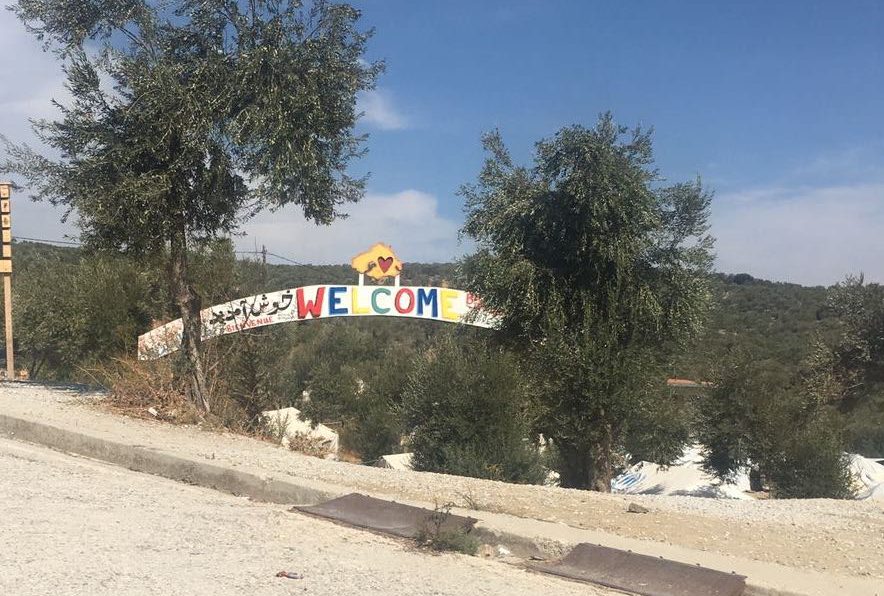 An entrance to Moria Camp
An entrance to Moria Camp